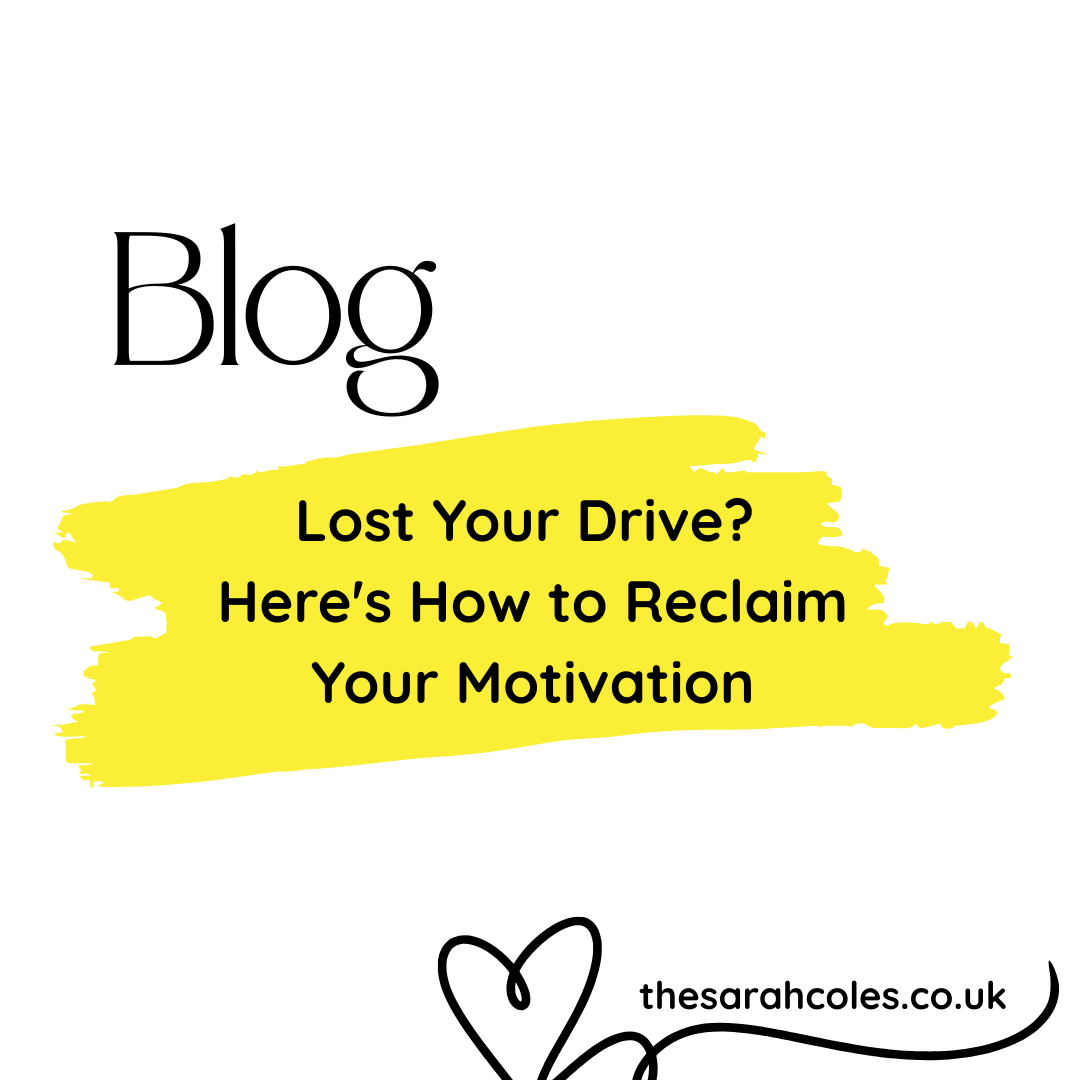We’ve all been there. You wake up, stare at your to-do list, and feel absolutely nothing. No spark, no energy, no desire to tackle even the simplest tasks. That familiar motivation that once propelled you forward has seemingly vanished without a trace.
Losing motivation isn’t just frustrating—it can feel genuinely frightening. When you can’t summon the energy to meet deadlines, maintain relationships or even look after your basic needs, life becomes an uphill battle. But here’s the encouraging truth: motivation isn’t a permanent state, and it’s absolutely possible to reignite that inner drive.
Understanding why motivation disappears is the first step towards recovery. More importantly, discovering practical methods to restore your enthusiasm can transform those sluggish days into opportunities for renewed purpose and energy.
Why Motivation Disappears
Motivation doesn’t simply evaporate without reason. Several factors contribute to that overwhelming sense of inertia that leaves you feeling stuck and uninspired.
Stress: The Silent Motivation Killer
Chronic stress acts like a heavy blanket over your natural enthusiasm. When your mind constantly processes worry, uncertainty or pressure, it struggles to find the mental resources needed for motivation. Your brain becomes so focused on managing stress that it can’t spare energy for goal-oriented thinking.
Stress manifests differently for everyone. Some people experience physical symptoms like headaches or fatigue, while others notice mental fog or emotional numbness. Regardless of how stress appears in your life, it consistently undermines your ability to feel excited about tasks and goals.
Overwhelming Responsibilities
Sometimes motivation disappears simply because you’re carrying too much. When your plate overflows with obligations—work deadlines, family responsibilities, social commitments—your brain can shut down as a protective mechanism. This overwhelm creates a paradox: the more you need to accomplish, the less capable you feel of tackling anything at all.
Disconnection from Purpose
Tasks feel meaningless when you lose sight of why they matter. Whether it’s a work project that seems pointless or personal goals that no longer align with your values, disconnection from purpose drains motivation faster than almost anything else. When you can’t answer “why does this matter?”, enthusiasm naturally fades.
Physical and Mental Exhaustion
Your body and mind need fuel to generate motivation. Poor sleep, inadequate nutrition, lack of movement, or mental burnout all contribute to motivational depletion. Think of motivation as a renewable resource—without proper care and restoration, the well runs dry.
Recognising the Warning Signs
Motivation loss rarely happens overnight. Understanding the early warning signs helps you intervene before complete motivational shutdown occurs.
You might notice procrastination becoming your default response to important tasks. Simple activities that once felt automatic—like tidying your space, preparing meals, or responding to messages—suddenly require enormous effort. Sleep patterns often shift, either towards excessive sleeping or restless nights filled with worry.
Social withdrawal frequently accompanies motivation loss. You cancel plans, avoid phone calls, and feel disconnected from friends and family. Even activities you previously enjoyed feel burdensome or uninteresting.
Physical symptoms often emerge alongside emotional ones. You might experience changes in appetite, persistent fatigue despite adequate rest, or a general sense of heaviness that makes movement feel difficult.
Practical Methods to Restore Your Motivation
Recovery requires intentional action, but the good news is that small steps can create significant momentum. Here are proven strategies to help you reclaim your drive.
Start Ridiculously Small
When motivation feels absent, traditional goal-setting advice falls flat. Instead of ambitious plans, focus on actions so small they feel almost silly to avoid. Want to exercise? Commit to putting on your trainers. Need to tidy your space? Pick up five items. Hoping to eat better? Drink one glass of water.
These micro-actions bypass the resistance your brain creates around larger tasks. Success with tiny steps builds momentum and confidence, gradually expanding your capacity for bigger challenges.
Create Structure Without Pressure
Routine provides scaffolding when motivation feels shaky. However, rigid schedules can feel overwhelming when you’re already struggling. Instead, create flexible structure that supports without constraining.
Choose three non-negotiable activities for each day: one for your physical wellbeing (like a short walk), one for your mental health (perhaps five minutes of meditation), and one small productive task. This framework provides direction without creating additional pressure.
Reconnect with Your ‘Why’
Spend time reflecting on what matters most to you. Write down your core values and consider how your current tasks and goals align with these principles. When specific activities feel meaningless, look for ways to connect them to larger purposes.
For example, if a work project feels pointless, consider how completing it demonstrates reliability, supports your team, or provides financial security for goals you care about. Finding these connections can reignite enthusiasm for otherwise mundane tasks.
Address Stress Directly
You cannot restore motivation while drowning in stress. Identify your primary stressors and develop specific strategies for managing them. This might involve setting boundaries, asking for help, or temporarily reducing commitments.
Practice stress-reduction techniques that work for your lifestyle. Deep breathing exercises, short walks, journaling or brief meditation sessions can all help reset your nervous system and create space for motivation to return.
Prioritise Physical Restoration
Your body provides the foundation for mental and emotional energy. Focus on the basics: aim for consistent sleep schedules, eat nourishing foods regularly, and incorporate gentle movement into your day.
You don’t need perfect habits immediately. Small improvements in physical care compound over time, gradually increasing your energy and capacity for motivation.
Celebrate Small Wins
When motivation feels low, your brain needs evidence that progress is possible. Acknowledge every small step forward, no matter how insignificant it might seem. Keep a simple record of daily accomplishments—even getting dressed or making breakfast counts.
This practice rewires your brain to notice success rather than focusing solely on what remains undone. Over time, this shift in perspective naturally supports increased motivation.
Seek Connection and Support
Isolation compounds motivation loss. Reach out to trusted friends, family members, or professionals who can provide encouragement and perspective. Sometimes simply talking through your struggles with someone who cares can provide the spark needed to take your next small step.
Consider joining groups or communities centred around your interests or goals. Surrounding yourself with others who share similar pursuits can provide inspiration and accountability.
Your Next Step Forward
Restoring motivation isn’t about finding a magic switch that instantly returns you to peak performance. It’s about understanding that motivation ebbs and flows naturally, and developing tools to navigate those challenging periods with compassion and practical wisdom.
Remember that progress isn’t always linear. Some days will feel easier than others, and that’s completely normal. The key lies in maintaining gentle consistency rather than expecting dramatic transformation overnight.
Choose one small action from the strategies above and commit to trying it today. Whether it’s taking a five-minute walk, writing down three things you value or simply acknowledging one small thing you accomplished, that single step can begin your journey back to renewed enthusiasm and purpose.
Your motivation isn’t permanently lost—it’s simply waiting for the right conditions to flourish again. With patience, practical strategies and self-compassion, you can create those conditions and rediscover the drive that will carry you forward.
Further Reading: 12 Months to a Better You, Fix Your Stress: Strategies for a Calmer, Healthier You, Master Your Emotions: A Practical Guide
Follow Me on Instagram for Daily Inspiration 💙








